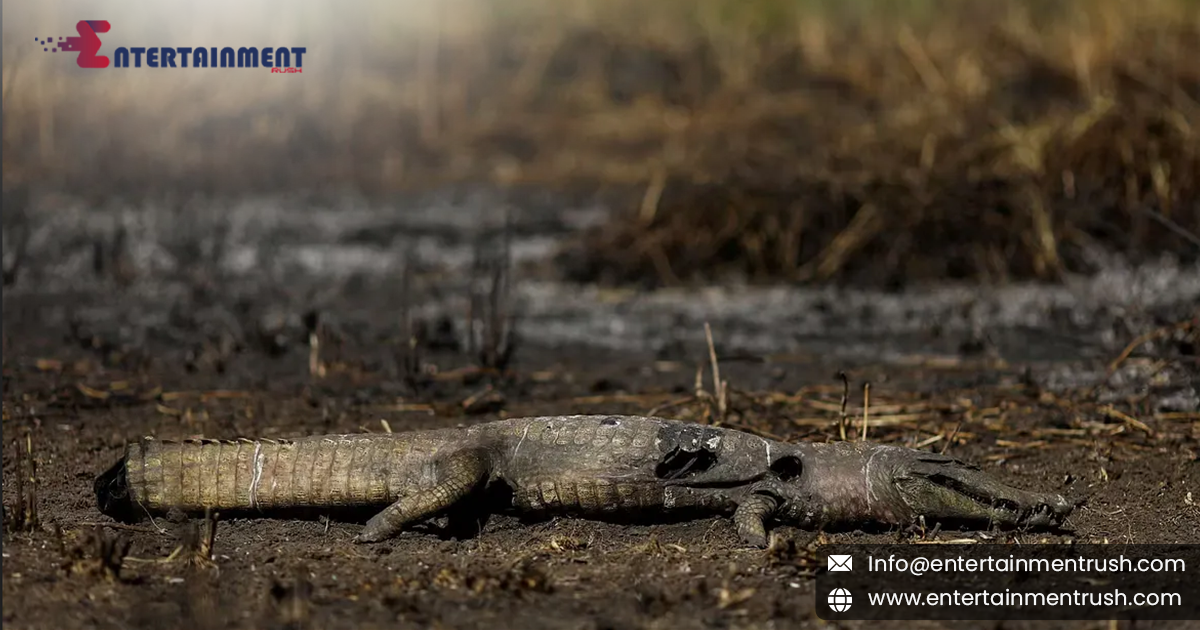The world’s largest wetland, the Pantanal, is facing a dire situation as reports suggest it may be engulfed in fires, raising significant concerns about the impact on its unique ecosystem and the rare animals that inhabit it. The Pantanal, a vast and biodiverse region spanning Brazil, Bolivia, and Paraguay, is renowned for its rich wildlife and vital role in the global environment. In this blog, we will explore the current crisis, its implications for the wetland’s inhabitants, and the broader environmental impact.
The Pantanal Wetland: A Biodiversity Hotspot
The Pantanal is one of the most important wetlands in the world, covering approximately 140,000 square kilometers. Its diverse habitats include flooded grasslands, dense forests, and river systems that support a wide array of wildlife. The wetland is home to numerous rare and endangered species, including the jaguar, the giant river otter, and the marsh deer. Its intricate ecosystems provide crucial breeding grounds, feeding areas, and shelter for these animals, making it a key area for conservation efforts.
The Threat of Fires
Recent reports and satellite images have indicated a worrying trend: fires are ravaging the Pantanal. These fires are not only a result of natural processes but are often exacerbated by human activities such as deforestation, land clearing, and agricultural practices. The region has experienced prolonged periods of drought, which have further intensified the risk of fires. The situation is particularly alarming given the wetland’s crucial role in regulating the local climate and maintaining the balance of its ecosystems.
Impact on Rare Animals
The fires threatening the Pantanal pose a severe risk to its rare and endangered species. Many animals are directly affected by the flames, which can destroy their habitats and force them to flee in search of safer areas. Species like the jaguar, which relies on the wetland’s dense vegetation for hunting and shelter, are particularly vulnerable. The loss of habitat also affects the availability of food sources, further endangering these animals’ survival.
In addition to direct harm, the fires can have long-term ecological consequences. The destruction of plant life and aquatic systems disrupts the entire food chain, affecting not only the animals but also the overall health of the wetland. The fires can lead to soil erosion, altered water flow patterns, and reduced biodiversity, which can take years to recover.
Efforts to Combat the Crisis
Efforts to address the fires in the Pantanal are ongoing, involving local governments, conservation organizations, and international agencies. Firefighting teams have been deployed to control the blazes and prevent further spread. Conservation groups are working to protect critical habitats and provide support for affected wildlife. Addressing the root causes of the fires is equally important. There is a need for stronger regulations on land use, better management of agricultural practices, and increased awareness of the importance of preserving the Pantanal’s natural resources. Collaborative efforts between governments, businesses, and communities are essential to tackle the underlying issues and prevent future crises.
The Path Forward
The situation in the Pantanal is a stark reminder of the fragility of our planet’s ecosystems and the urgent need for concerted conservation efforts. As the world’s largest wetland faces the threat of burning and endangerment of its rare animals, all stakeholders must come together to protect this invaluable natural treasure.
The future of the Pantanal—and the rare animals that call it home—depends on our ability to address the immediate crisis and implement long-term solutions to safeguard its biodiversity. By raising awareness, supporting conservation initiatives, and advocating for sustainable practices, we can help ensure that this vital wetland continues to thrive for generations to come. the burning of the world’s largest wetland is a critical issue that demands our attention and action. The Pantanal’s unique ecosystems and rare animals are at risk, and it is our collective responsibility to protect and preserve this irreplaceable natural wonder.




Leave feedback about this